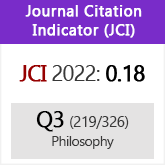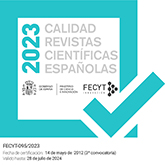„Der Schmerz war, der er war“. Torture and theorizing of Pain in Jean Améry
DOI:
https://doi.org/10.3989/isegoria.2019.060.16Keywords:
Jean Améry, Pain, body, Representation, Victim, Other, tortureAbstract
Jean Améry, survivor of the Shoah, will be unable for two decades to theorize his experience, as a traumatic consequence of the violence and torture suffered. From the mid-sixties until his death, Améry will deal in essays and literarily with the destruction inflicted on him. Its narrative task will be the titanic effort to subvert the impossibility, associated with the memory of extreme pain, determinant for its victim status, through the word. A word capable of returning you –always in a partial and subsidiary way– the condition of subject. However, the experience of pain will be intangible, subsumed by time in the ethereal form of an abstraction. memory is revealed in Améry as incapable against the substance of pain, only accessible to recurrent scenes of painful clarity for vision.
Downloads
References
Adorno, t. W. (1998), Metaphysik. Begriff und Probleme, nachgelassene Schriften, bd. 14, Berlin, Suhrkamp (2005), Dialéctica negativa, Obra Completa, 6, Madrid, Akal.
Alleg, H. (1958), La tortura, buenos Aires, Ediciones del Pórtico.
Améry, J. (1999), Levantar la mano sobre uno mismo. Discurso sobre la muerte voluntaria, Valencia, Pre-textos; (2001), Más allá de la culpa y la expiación. Tentativas de superación de una víctima de la violencia, Valencia, Pre-textos; (2006), Años de andanzas nada magistrales, Valencia, Pre-textos; «Jargon der Dialektik», Werke, band 6, Stuttgart, Klett-Cotta, 2017; Die Dornenkrone der liebe, Werke, band 1, Stuttgart, Klett-Cotta, 2007; Vorwort zu An-klagen. Schriften für Amnesty International, Fiechtner, u. m.- Magiera, C. (eds.), Tübingen, Bernhard Bruscha, 1977, 7-9.
Arendt, H. (1999), Eichmann en Jerusalén: estudio sobre la banalidad del mal, Barcelona, Lumen.
Bataille, G. (2000), La literatura y el mal, Madrid, Taurus
(2007), El erotismo, Barcelona, Tusquets.
Diner, D. (2012), «Verschobene Erinnerung. Jean Amerys Die Torturwiedergelesen», en Mittelweg 36, 2, 22-28.
Fackenheim, E. L. (1982), To Mend the World. Foundations of Future Jewish Thought, nueva York, Schocken books.
Heidelberger-Leonard, I. (2004), Jean Améry. Revolte in der Resignation, Stuttgart, Klett-Cotta; Heidelberger-Leonard, I.-von der Lühe, I. (eds.), Seiner Zeit voraus. Jean Améry - ein Klassiker der Zukunft?, Göttingen, Wallstein, 2009.
Lassmann, M., «Die Grenzen des Körpers, die Grenzen der Sprache. Jean Améry und maurice merleau-Pontys Phänomenologie», en Heidelberger-Leonard, I.-von der Lühe, I. (eds.), 91-101.
Levinas, E. (1998), «Algunas reflexiones sobre el hitlerismo», en Beltrán, M.-Mardones, J. M.-Mate, R. (eds.), Judaísmo y límites de la modernidad, Barcelona, Riopiedras.
Mate, R. (2003), Memoria de Auschwitz, Madrid, Trotta.
Merleau-Ponty, M. (1994), Fenomenología de la percepción, Barcelona, Planeta-Agostini.
Safranski, R. (2000), El mal o el drama de la libertad, Barcelona, Tusquets.
Sartre, J. P. (1960), La república del silencio, Buenos Aires, Losada
(2014), El ser y la nada, Buenos Aires, Losada
(1981), Las moscas, Madrid, Alianza-Losada.
Scheit, G. (2006), «Dialektik und Erfahrung. Jean Amery, Theodor W. Adorno und der kategorische Imperativ nach Auschwitz», en Grigat, S. (ed.), Feindaufklärung und Reeducation, Freiburg, ça ira Verlag, 99-113
(2013) «Folter und Vernichtung», en Hewera, B.-Mettler, M. (eds.), An den Greinzen des Geistes. Zum 100. Geburtstag von Jean Améry, Marburg, Tectum, 63-83.
Sebald, W. G. (2001), Austerlitz, Barcelona, Anagrama.
Serrano de Haro, A. (2002), «Totalitarismo y filosofía», en Mate R. (ed), La filosofía después del holocausto, Barcelona, Riopiedras.
Siguan, M. (2014), Schreiben an den Grenzen der Sprache. Studien zu Améry, Kertész, Semprún, Schalamow, H. Müller und Aub, Berlin, De Gruyter https://doi.org/10.1515/9783110348590
(2010), «Unsagbar sagbar: Amérys tortur, Lefeus Wörter», en Schneider, S. (ed.), Die Grenzen des Sagbaren in der Literatur des 20. Jahrhunderts, Würzburg, Königshausen & Neumann, 153-165.
Vialon, M. (2005), «Jean Améry-Philosoph der Aufklärung im Spiegel seiner Auseinandersetzung mit Theodor W. Adorno», en Bormuth, M.-Nurmi-Schomers, S. (eds.), Kritik aus passion. Studien zu Jean Améry, Göttingen, Wallstein.
Weiler, S. (2012), Jean Amérys Ethik der Erinnerung. Der Körper als Medium in die Welt nach Auschwitz, Göttingen, Wallstein (2009), «Die Ästhetik als Phänomenologie der Erinnerung in Jean Amérys Roman-Essay Lefeu oder der Abbruch», en Heidelberger-Leonard I.-Von der Lühe, I. (eds.), 75-89.
Downloads
Published
How to Cite
Issue
Section
License
Copyright (c) 2019 Consejo Superior de Investigaciones Científicas (CSIC)

This work is licensed under a Creative Commons Attribution 4.0 International License.
© CSIC. Manuscripts published in both the printed and online versions of this Journal are the property of Consejo Superior de Investigaciones Científicas, and quoting this source is a requirement for any partial or full reproduction.All contents of this electronic edition, except where otherwise noted, are distributed under a “Creative Commons Attribution 4.0 International” (CC BY 4.0) License. You may read here the basic information and the legal text of the license. The indication of the CC BY 4.0 License must be expressly stated in this way when necessary.
Self-archiving in repositories, personal webpages or similar, of any version other than the published by the Editor, is not allowed.














